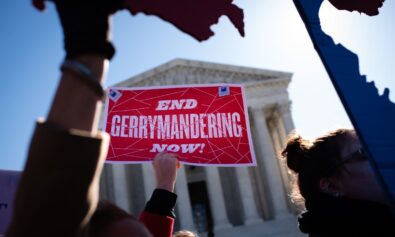Progress has been made in getting the word slavery removed from Utah’s constitution.
In a decision from the state House Judiciary Committee, members voted unanimously to have slavery, which is illegal except for use as a punishment, removed from the document. The move supports Rep. Sandra Hollins’ House Joint Resolution 8.
“I am overwhelmed and I am grateful. I think those are the only two words to describe how I feel after that experience,” Democrat Hollins told ABC 4 Tuesday, Feb. 5. “It’s going to be a long haul because it still has to go on the ballot and we have some educating to do out in the community about what this bill is and what it means. And I look forward to the challenge.”
Hollins explained during the hearing that the loophole was placed in the 13th Amendment to the U.S. Constitution in 1865 to address concerns about a possible lack of available labor. As a result, several states in the South passed “black codes.” These laws placed harsh limits on Black Americans’ freedom and ensured they’d be able to be used as a cheap labor force following the abolishment of slavery. Later, states could use “convict leasing” to make a profit by using Black prisoners for labor, for which they were not paid. Utah’s population is less than 1.5 percent Black.
Yet, regardless of getting slavery removed as a form of punishment in Utah’s constitution, Hollins made it clear she backs prison reform.
“I think prison should be an opportunity for people to rehabilitate themselves,” she said to the local ABC station. “People should have the opportunity to work. It should be part of the rehabilitation system — work requirements and education so that we are able to send people back out in the community where they are able to function in the community on their own and be self-sufficient.”
During the hearing, the committee heard from residents, religious organizations, activists like Black Lives Matter, politicians, and the Salt Lake City NAACP, all of whom were in favor of the bill.
“Being that we have this opportunity to change something like this in 2019 makes me very proud to say I currently live in Utah and am raising a young, black child in Utah,” said Ashley Cleveland, a woman who lives in Salt Lake City, according to The Salt Lake Tribune.
Some who testified had no clue about the verbiage in the constitution.
“All of the representatives that were here on the committee were shocked and appalled at the language and I think it was a time that they were looking at the climate of the country and wanted to say, ‘In Utah, we can make a difference,'” said Jeanetta Williams, president of the local NAACP, to the news station. “If it’s a fight, then we’re gonna be ready to fight, make sure that we get this passed.”
“Neither slavery nor involuntary servitude, except as a punishment for crime, whereof the party shall have been duly convicted, shall exist within this State,” reads Article I, Section 21 currently.
With HJR8 now on the House floor, it must next pass through the Senate and make its way to the governor. If Gary Herbert signs off, the constitutional amendment would be on the ballot for Utah residents to vote on for the 2020 election.
Should the measure go through, it will amend the Utah Constitution to read, “Neither slavery nor involuntary servitude shall exist within this State.”


